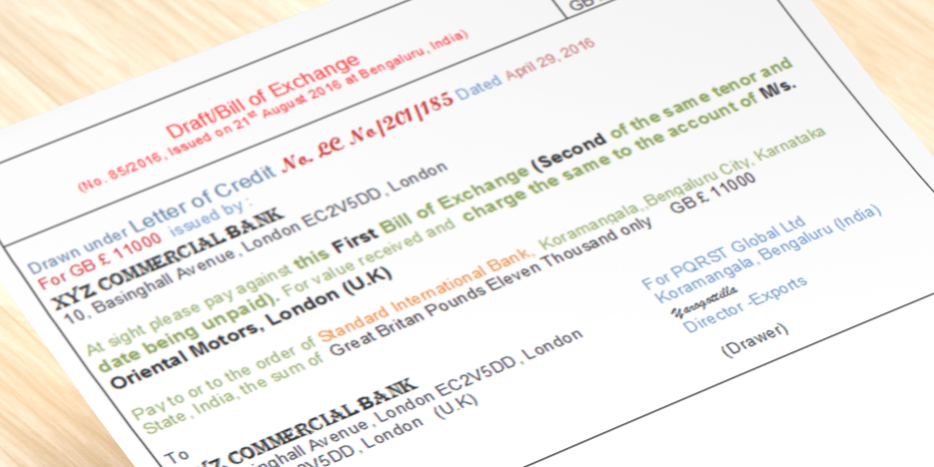A Bill of exchange is a written, unconditional order by one party (the drawer) to another party (the drawee) to pay a specified sum of money to a third party (the payee) at a predetermined date or on demand. The bill of exchange serves as a promise to pay and acts as a credit instrument, providing security and trust in transactions. Following are the important terms related to bills of exchange:
Drawer: The drawer is the person who creates a bill of exchange, which is a written document that outlines a debtor’s debt to a creditor.
Drawee: Drawee is the person also known as the acceptor upon whom the bill of exchange is drawn. He is the debtor who has to pay the money to the drawer.
Payee: The payee in a bill of exchange is the person or entity that receives the payment specified in the bill. The payee may be the drawer himself or a third party. The payee is entitled to collect the funds owed by the drawee, the party that is required to make the payment
Demand bill: A demand bill of exchange is a written order that necessitates one party to pay another party a fixed amount of money upon demand or when presented. It does not have a specific date or time for payment, so the transaction can take place as soon as the bill is presented.
Negotiable instrument: A negotiable instrument is a written document. This document specifies payment to a specific person or the bearer of the instrument either on-demand or at a set time. Negotiable instruments are defined in the Negotiable Instrument Act of 1881. N.I. Act is the law relating to Promissory Notes, Bills of Exchange, and Cheques.
Other important terms and details about bills of exchange;
The bill of exchange must be a written document
The bill of exchange must be a written document
The bill of exchange must be dated and stamped
The bill of exchange must be signed by the drawer
The bill of exchange must specify the amount to be paid
The bill of exchange must specify the date of maturity
The bill of exchange must specify the name and address of the drawer and drawee
The bill of exchange must specify that the payment is to be made to a specific person or their order
The bill of exchange must have adequate stamp duty (Not applicable to Cheques)
Related Post:
KEY SECTIONS, DEFINITIONS & PROVISIONS UNDER THE NEGOTIABLE INSTRUMENT ACT 1881






